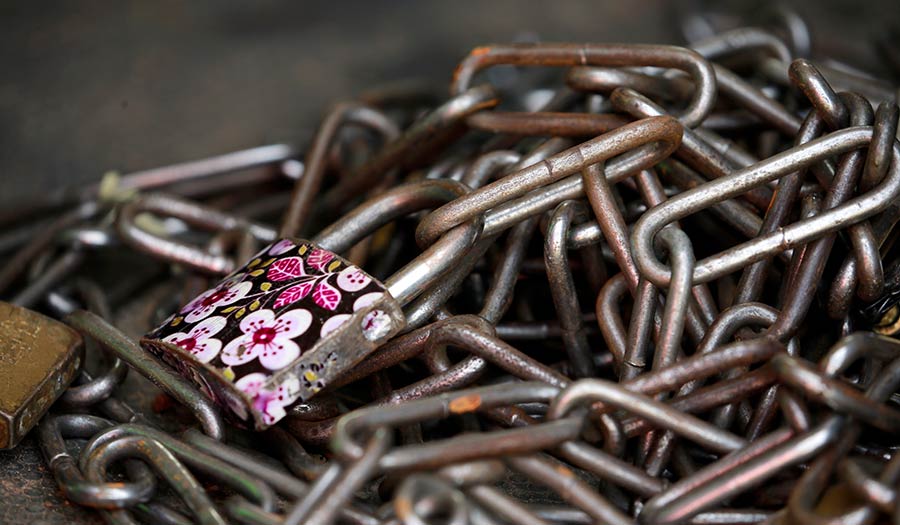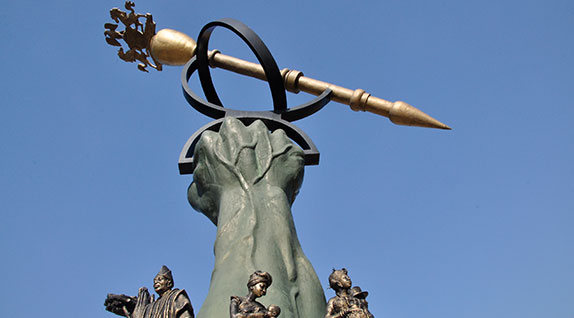 Reuters/Afolabi Sotunde
Reuters/Afolabi Sotunde
Article
Learn the why behind the headlines.
Subscribe to the Real Truth for FREE news and analysis.
Subscribe NowWhen Islamist militants abducted 344 students from the Government Science Secondary School Kankara in northwest Nigeria last December, it sparked outrage and concern across the world. Many suspected the involvement of Boko Haram, the jihadi group that in April 2014 kidnapped 276 girls from a school dormitory in Chibok. One hundred of those girls are still missing.
But since the December event, mass abductions of school children in northwest Nigeria have become a regular occurrence—with at least one happening every three weeks.
Most recently, gunmen abducted three teachers from a primary school in Nigeria’s northwest on March 15, four days after several dozen students from another school in Kaduna state were abducted.
This most recent attack was carried out at the Rema Primary School, according to Samuel Aruwan, the Kaduna State Commissioner for Internal Security and Home Affairs. It was the second attempt to abduct school children in the state since Thursday, when 39 students of the Federal College of Forestry Mechanization were abducted.
The attack on the school came hours after the Nigerian media circulated a video of some of the students abducted from the college. The video, which showed the students pleading for help to secure their freedom, showed disturbing scenes of gunmen in military camouflage beating them with whips.
In February, gunmen abducted 42 people, including 27 students, from the Government Science College Kagara in Niger State.
Teachers have been forced to flee to other states for protection, and many children have had to abandon their education amid frequent violent attacks in communities, according to Amnesty International.
Unlike the Boko Haram attack in 2014, the most recent string of kidnappings have not been solely driven by religious extremism. “The perpetrators are often gangs of bandits taking advantage of inadequate policing and the easy availability of firearms,” Deutsche Welle reported.
“The banditry violence, unconnected to the Boko Haram insurgency in the northeast, began as a farmer-herder conflict in 2011 and intensified between 2017-2018 to include cattle rustling, kidnapping for ransom, sexual violence and killings.”
Armed groups also carry out mass abductions of school children either for political reasons or for ransom. Although authorities deny paying ransom to armed groups, many Nigerians believe these groups have become better armed and better organized with money paid them to free captive students.
“With Nigeria’s economy in crisis, kidnapping has become a growth industry, according to interviews with security analysts and a recent report on the economics of abductions,” The New York Times reported. “The victims are now not just the rich, powerful or famous, but also the poor—and increasingly, school children who are rounded up en masse.”
Militant groups are finding that it pays better to target more indiscriminately and aim to kidnap larger groups of people.
“When you have such large-scale abduction of children, especially defenseless, harmless children, the ransom value will be high because of the international pressure to rescue them,” Confidence McHarry, a security analyst who worked on Nigerian platform SBM Intelligence, said to The New York Times.
Indiscriminate abductions also tend to have more deaths associated with them, allowing perpetrators to be less concerned with keeping their victims alive. “As the abductor, everything is in your favor,” he said.
According to the report, kidnappers received $18 million in ransom money from June 2011 to March 2020.
And each kidnapping brings media publicity that inspires other armed groups to do the same, as well as other repercussions. The news outlet continued, “when hostages are liberated, the government sometimes capitalizes on the publicity. And corrupt government officials have also been accused of skimming portions of the ransom money, according to Nigerian analysts and media reports.”
This article contains information from The Associated Press.
- Real Truth Magazine Articles
- AFRICA
 Nigeria: Sleeping Giant in the Sun
Nigeria: Sleeping Giant in the Sun
Other Related Items:
- Freed Nigerian Schoolboys Return Home, Tell of Beatings and Hunger
- Gunmen Abduct 317 Schoolgirls in Increasingly Lawless Northwest Nigeria


